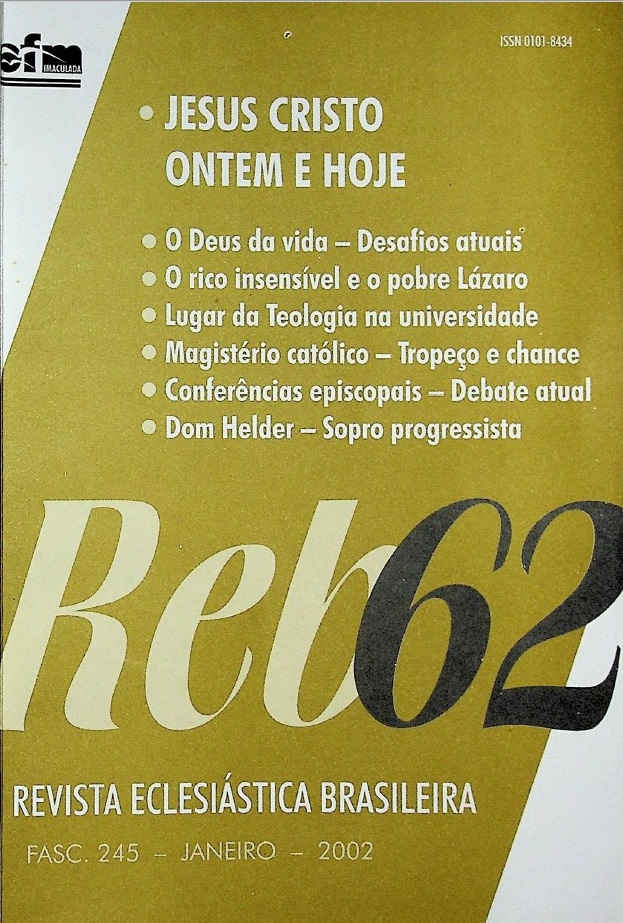O rico e o pobre. Estudo da parábola do rico insensível e do pobre Lázaro (Lc 16,19-31)
DOI:
https://doi.org/10.29386/reb.v62i245.1986Palavras-chave:
Parábola, Lc 16, 19-31.Resumo
A proposta do autor do artigo é que a parábola contada por Jesus não fique na tradição de uma história contada há dois mil anos atrás, mas penada nossas realidades a ponto de igualmente nos questionar, como acontecia a muitos ouvintes na Galiléia. O ponto de interesse da matéria situa-se no grande abismo, que Abraão diz existir entre o rico e o pobre. Em vida, esse abismo é fruto da indiferença de quem tudo tem, alheio à dor do necessitado. Na morte há como que uma mudança de mão. Quem tudo tinha torna-se carente e pedinte, e quem nada tinha entra no gozo amplo e eterno. Á insensibilidade do rico de todos os tempos é antológica. Á indigência a que o miserável é atirado converte-se em insulto contra a dignidade da pessoa humana de todos os tempos, convertendo-se igualmente num insulto àquele que o criou. A função do biblista é atualizar o fato histórico, fazendo-o reverter em gnomas morais.
Abstract: The proposal of the author of the article is that the parable told by Jesus does not remain in the tradition of a story told two thousand years ago, but that it pervades our reality to the point of equally questioning tis, just as it did to many listeners in Galilee. The point of interest of the material is placed within the great separation which Abraham says exists between the rich and the poor. In life, this gap is the fruit of the indiference of those Who have everything and are above the pain of those in need. In death there is as if a change of hands. Those who had everything become needy and begging, and those Who had nothing come into full and eternal satisfaction. The insensibility ofthe richfrom all periods of time is anthological. The misfortune in which the miserable ones are thrown becomes an insult against the dignity of the human beings in all times, converting itself equally into an insult to He Who acated them. Thefunction of the biblical scholar is to bring this historical fact up to date, making it revert into moral statements.Downloads
Downloads
Publicado
Como Citar
Edição
Secção
Licença
Direitos de Autor (c) 2020 Revista Eclesiástica Brasileira

Este trabalho encontra-se publicado com a Licença Internacional Creative Commons Atribuição 4.0.
Os autores cedem os direitos autorais; como gratificação, a REB oferece dois exemplares ao Autor de um artigo.
A REB adere à licença não comercial (Creative Commons). Portanto, é permitida cópia, distribuição e exibição dos textos, respeitados os direitos autorais e citada a fonte de sua proveniência.


